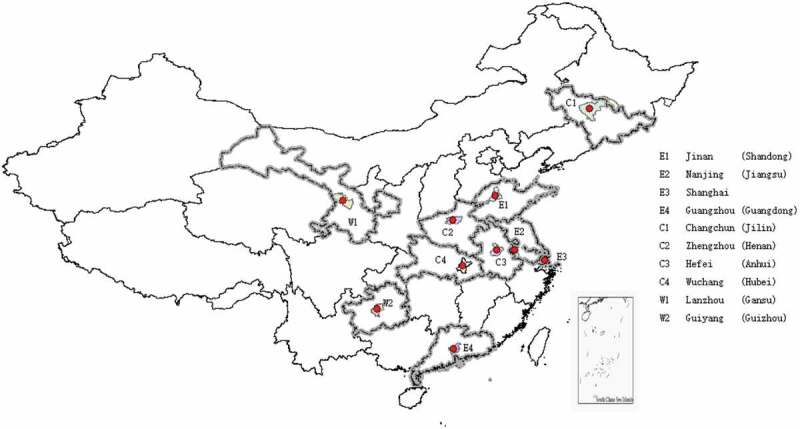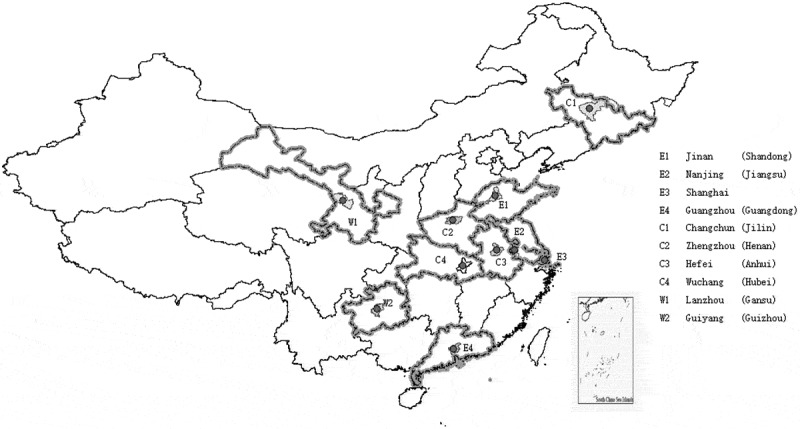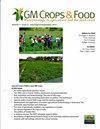消费者认知、强制性标识和转基因大豆油的可追溯性:来自中国城市消费者的证据。
IF 4.5
2区 农林科学
Q1 BIOTECHNOLOGY & APPLIED MICROBIOLOGY
Gm Crops & Food-Biotechnology in Agriculture and the Food Chain
Pub Date : 2021-01-01
DOI:10.1080/21645698.2020.1807852
引用次数: 8
摘要
消费者对转基因食品强制标签的偏好促进了公众对实施转基因食品政策的支持。本研究分析了消费者对转基因大豆油可追溯性的偏好。调查数据是通过对中国东部、中部和西部地区804名随机抽样的城市居民进行自我调查收集的。使用logit模型,本分析考察了影响因素对消费者可追溯性偏好的影响。结果显示,约56.5%的受访者对转基因大豆油的可追溯性有积极的偏好。增加对可追溯性偏好的因素包括对营养益处和潜在健康风险的属性有更好的认识,认识到简单强制性标签的不足,对食品标签的更多关注,以及对监督转基因食品安全的机构的不信任。提高消费者对转基因相关属性的认知和对食品标签的认识,有助于改善转基因食品的强制性标签管理。本文章由计算机程序翻译,如有差异,请以英文原文为准。



Consumer perception, mandatory labeling, and traceability of GM soybean oil: evidence from Chinese urban consumers.
ABSTRACT Consumer preference for the mandatory labeling of genetically modified (GM) foods promotes public support for the implementation of GM food policies. This study analyzes consumers’ preference for the traceability of GM soybean oil. Survey data were collected through a self-administered survey covering 804 randomly sampled urban residents in the eastern, central and western regions of China. Using a logit model, this analysis examines the impacts of influential factors on consumers’ preference for traceability. The results show that about 56.5% of the respondents have a positive preference for the traceability of GM soybean oil. Factors increasing the preference for traceability include a better perception of the attributes of nutrition benefit and potential health risk, perceived inadequacy of simple mandatory labels, more attention paid to food labels, and distrust in the agencies overseeing GM food safety. Enhancing consumers’ perceptions of GM-related attributes and awareness of food labels will help improve the mandatory labeling management of GM foods.
求助全文
通过发布文献求助,成功后即可免费获取论文全文。
去求助
来源期刊

Gm Crops & Food-Biotechnology in Agriculture and the Food Chain
Biochemistry, Genetics and Molecular Biology-Biotechnology
CiteScore
8.10
自引率
10.30%
发文量
22
期刊介绍:
GM Crops & Food - Biotechnology in Agriculture and the Food Chain aims to publish high quality research papers, reviews, and commentaries on a wide range of topics involving genetically modified (GM) crops in agriculture and genetically modified food. The journal provides a platform for research papers addressing fundamental questions in the development, testing, and application of transgenic crops. The journal further covers topics relating to socio-economic issues, commercialization, trade and societal issues. GM Crops & Food aims to provide an international forum on all issues related to GM crops, especially toward meaningful communication between scientists and policy-makers.
GM Crops & Food will publish relevant and high-impact original research with a special focus on novelty-driven studies with the potential for application. The journal also publishes authoritative review articles on current research and policy initiatives, and commentary on broad perspectives regarding genetically modified crops. The journal serves a wide readership including scientists, breeders, and policy-makers, as well as a wider community of readers (educators, policy makers, scholars, science writers and students) interested in agriculture, medicine, biotechnology, investment, and technology transfer.
Topics covered include, but are not limited to:
• Production and analysis of transgenic crops
• Gene insertion studies
• Gene silencing
• Factors affecting gene expression
• Post-translational analysis
• Molecular farming
• Field trial analysis
• Commercialization of modified crops
• Safety and regulatory affairs
BIOLOGICAL SCIENCE AND TECHNOLOGY
• Biofuels
• Data from field trials
• Development of transformation technology
• Elimination of pollutants (Bioremediation)
• Gene silencing mechanisms
• Genome Editing
• Herbicide resistance
• Molecular farming
• Pest resistance
• Plant reproduction (e.g., male sterility, hybrid breeding, apomixis)
• Plants with altered composition
• Tolerance to abiotic stress
• Transgenesis in agriculture
• Biofortification and nutrients improvement
• Genomic, proteomic and bioinformatics methods used for developing GM cops
ECONOMIC, POLITICAL AND SOCIAL ISSUES
• Commercialization
• Consumer attitudes
• International bodies
• National and local government policies
• Public perception, intellectual property, education, (bio)ethical issues
• Regulation, environmental impact and containment
• Socio-economic impact
• Food safety and security
• Risk assessments
 求助内容:
求助内容: 应助结果提醒方式:
应助结果提醒方式:


